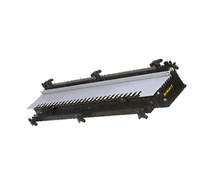Elu Dovetail Jig Manuals

I am considering buying a dovetail jig. I am a home woodworker, so this jig will be used 'now and then'. But, I am a perfectionist, so I am not happy with the look and fit of my handcut dovetails (through and half-blind). I see an old (1999) review of the Leigh DR4 jig on the FW website, but I think that Leigh must have modified or updated their jig since then.
I know it's expensive, but it's for ME!! So, I don't mind. Does anyone have any feedback about the DR4 PRO? How does it compare to other dovetail jigs (Porter Cable, MLCS, others?) Is the Leigh REALLY so hard to set up? Thanks • • •. I have had the D4 for ~15 years and have both the dove tail and MMT finger boards and about 2 years ago got the FMT Pro.
These are exceptionally well made tools and the user manuals are outstanding.  In fact, I used the manuals as models for writing operating procedures for very complex steel making and steel mill processing equipment.
In fact, I used the manuals as models for writing operating procedures for very complex steel making and steel mill processing equipment.
They are expensive. In early 1996 I purchased the D4 for $339; the equivalent jig today is $499.
I have not used the other jigs you mentioned so I can't provide a comparative assessment. What I can say is that they are very precise tools with a great deal of flexibility and supported by a very knowledgable technical staff. Also, Leigh has an extensive library of very well written manuals/procedures for making special joints such as angled dovetails, box joints and a variety of other not so obvoius uses for the jigs. Sliding dove tails are quite easy to do for example. These jigs require longer than normal length bits and those available from Leigh are my first choice but the bits from MLCS work just fine.
Click to download PDF Manual. This Silverline Dovetail Jig 300mm is guaranteed for a period of 30 days from date of purchase against a fault developing in.
I prefer, and Leigh recommends, 8mm (5/16') shanks rather than 1/4'. For deep boring applications with the MMT set up 1/2' shanks and 4' long spiral upcut bits are a must. I prefer the solid carbide bits over the HSS.
A plunge router is required. I use an Elu 3338 and find it a perfect match for the Leigh jigs. Some complain about the multi page manuals but these are sophisticated jigs and the instructions are very, very detailed and essential for the occasional user as you may be. There are simpler jigs out there but none as versitile as the Leigh especially if you want to do more than simple half blind and through dovetails. So, you are about to make a rather sustantial investment in both the jig and associated bits, collet adapters and guide bushings. When you add up all the costs and the available joints for each jig I think you'll see that the Leigh (Pro series) is a worthy investment.
First, do you need the 24' capacity of the DR4? Second, do you need variable spacing for what you describe as occasional use? If the answer to both questions is 'no', then you might find the Porter Cable 4212 jig easier to use and easier to set up. But, be aware of the limitations that are imposed by a fixed-spacing jig. The fixed spacing imposes stock-width increments that are essential for symmeterical joints, and symmetrical joints are important if making boxes with through dovetails.

The PC 4212 has templates available for both 'normal' (1/2') and mini DTs (1/4'). It's fairly easy to use and set up, once you understand the design. The PC manual, however, could benefit from a re-write.
If you need both 24' capacity and variable spacing, either the Leigh DR4 or the PC Omnijig are good choices. The advantage of the PC Omnijig is that it includes a number of bit-depth gauges that can be set for various stock thicknesses, easing the setup process. But, the Omnijig is larger and heavier than the DR4. Although variable spacing eliminates the need to adhere to stock-width limitations of the fixed-spacing jigs, it also imposes more complexity in setup.